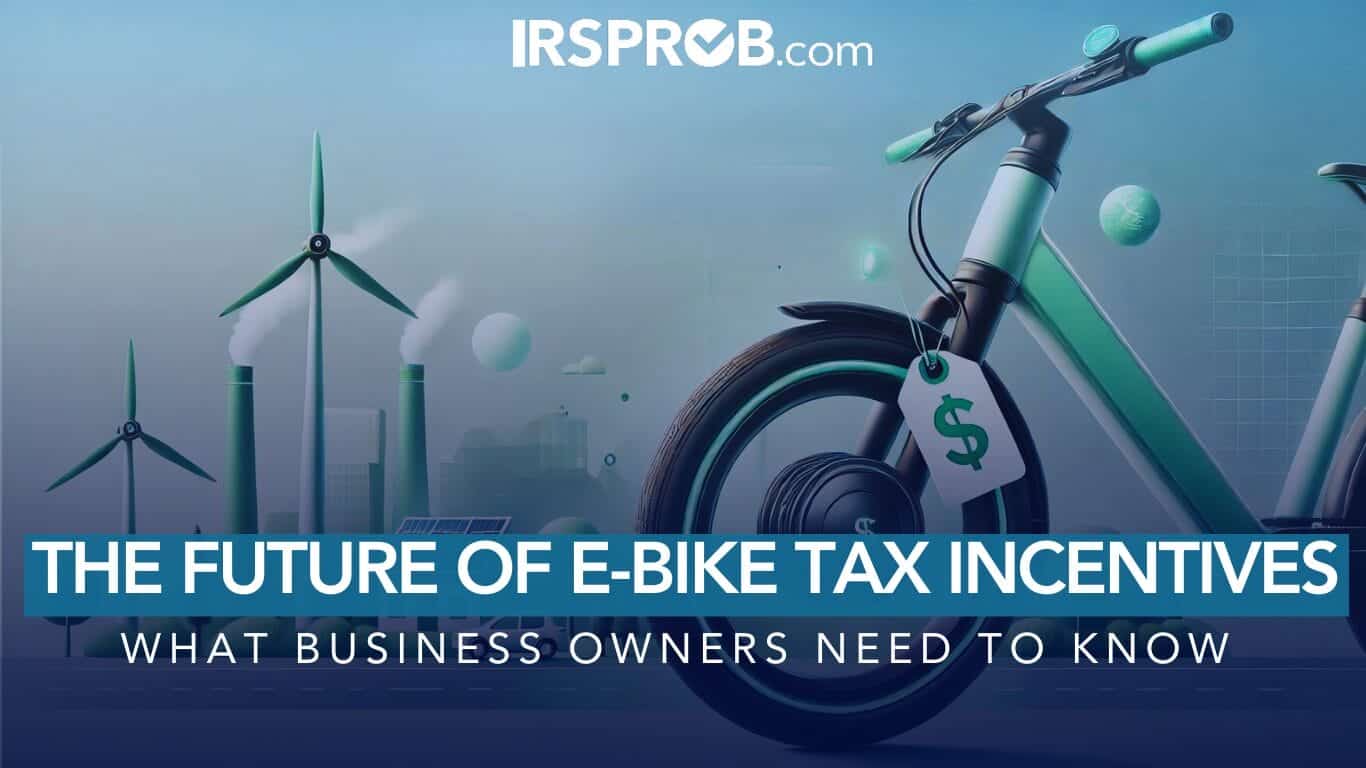
As the world continues to embrace sustainable transportation options, electric bicycles (e-bikes) are gaining popularity as an energy-efficient alternative for commuting and daily travel. For business owners considering e-bikes for themselves or their employees, understanding the potential tax benefits is crucial. While federal tax incentives for e-bikes are not yet in place, there are ongoing legislative efforts and existing state-level benefits that could make e-bike purchases more financially attractive.
Current Status of Federal E-Bike Tax Credits
At present, there are no federal income tax credits specifically for purchasing e-bikes. However, proposed legislation, such as the Electric Bicycle Incentive Kickstart for the Environment (E-BIKE) Act, aims to change that. This act, first introduced in 2021, proposes a refundable 30% tax credit for the purchase of a new e-bike, with a price cap of $8,000. The credit would be available once every three years, or twice for joint filers purchasing two e-bikes.
However, the proposed legislation has its limitations. Similar to the income restrictions seen with electric vehicle (EV) tax credits, the e-bike tax credit would only be available to single filers earning up to $150,000 or joint filers with a combined income of up to $300,000. This means that higher-income individuals may not qualify for the federal credit if the legislation passes in its current form.
State-Level E-Bike Incentives
While the federal government has yet to pass an e-bike tax credit, several states have taken the initiative to offer their own incentives. These incentives can significantly reduce the cost of purchasing an e-bike, making it an appealing option for both personal and business use.
For example, in Florida, residents may be eligible for a 30% tax credit of up to $1,500 on e-bikes costing less than $8,000. Similarly, Massachusetts offers a rebate for low-income individuals and a 30% tax credit for all residents. These state-level incentives vary widely, so it’s essential for business owners to check the specific benefits available in their state.
As more states recognize the environmental and economic benefits of e-bikes, additional legislation is likely to emerge. Business owners should stay informed about potential state-level tax breaks and rebates that could make e-bike purchases more cost-effective.
Practical Considerations for Business Owners
For business owners contemplating the purchase of e-bikes for commuting, employee incentives, or business-related travel, understanding the potential tax implications is essential. Here are a few key points to consider:
- Check State-Specific Benefits: Since e-bike incentives vary from state to state, it’s crucial to research the tax credits, rebates, or other incentives available in your area. This information can help you make an informed decision and maximize potential savings.
- Keep an Eye on Federal Legislation: While federal e-bike tax credits are not yet a reality, proposed legislation like the E-BIKE Act could change that in the near future. Staying informed about these developments will help you take advantage of any new tax incentives as they become available.
- Consider the Broader Tax Picture: If you purchase e-bikes for business use, the cost may also be deductible as a business expense under certain circumstances. For instance, if the e-bikes are used primarily for business-related travel, you may be able to claim deductions for the purchase, maintenance, and operation of the e-bikes. It’s essential to keep detailed records and consult with a tax professional to ensure compliance with IRS guidelines.
- Evaluate Employee Benefits: Offering e-bikes as part of an employee benefits program could enhance your company’s appeal to environmentally conscious employees. However, it’s important to understand the tax implications of providing e-bikes as a fringe benefit. Depending on the structure of the benefit, the value of the e-bike may be taxable to the employee, so it’s crucial to structure the program in a way that aligns with IRS regulations.
Conclusion
E-bikes present an exciting opportunity for business owners looking to embrace sustainable transportation options. While federal tax incentives are not yet available, state-level benefits and the potential for future federal credits make e-bike purchases a compelling option. By staying informed about the evolving legislative landscape and considering the broader tax implications, business owners can make strategic decisions that benefit both their bottom line and the environment.
Stay tuned to IRSProb.com for updates on e-bike tax legislation and other tax-saving opportunities for your business.







